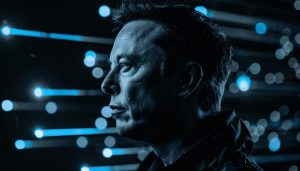OpenAI seeks to dismiss Elon Musk lawsuit calling contract claims ‘revisionist’

OpenAI has stated that Elon Musk’s claim that the company violated its contractual commitments to create an open-source, nonprofit entity is “revisionist” and is an attempt to promote his own competing AI firm.
The Tesla CEO, who helped to found the company in 2015, sued the company and its chief executive Sam Altman in March, contending that the Microsoft-backed company’s shift towards profit-oriented objectives goes against the original agreement.
“Years ago, plaintiff Elon Musk abandoned OpenAI when his bid to dominate the venture failed,” OpenAI’s lawyers stated in a court filing, seeking dismissal of the lawsuit. “Now that he has launched a competing artificial intelligence firm, Musk seeks to leverage the success OpenAI has achieved and to direct OpenAI’s affairs for his own commercial benefit.”
OpenAI’s lawyers also deny Musk’s accusation that the company pledged not to monetize its technology, asserting that the billionaire owner of the social media platform X has not provided any contractual evidence to support his claim. “Musk cannot bring suit on an agreement that he cannot even plead into existence,” according to the state court filing in San Francisco.
What were OpenAI’s claims against Musk?In a demurrer and motion to strike filed on March 27, OpenAI claimed that Musk’s argument contained a critical error and that the alleged Founding Agreement was “make-believe.” In simpler terms, such an agreement never existed, and Musk had failed to demonstrate the existence of any contract—whether written, oral, or implied—that substantiated his claim. The company added, “Musk cannot bring suit on an agreement that he cannot even plead into existence.”
A demurrer is a legal objection that questions the sufficiency of a plaintiff’s complaint. It essentially requests the court to determine that even if all the plaintiff’s statements are proven true at trial, they still would not constitute a sufficient basis for a judgment in the plaintiff’s favor. This mechanism allows the court to eliminate, at the outset of litigation, cases where the facts—as presented by the plaintiff—do not constitute a legitimate legal claim.
Alongside the demurrer, OpenAI submitted a motion to strike sections of Musk’s complaint. These sections requested the court to assess the development status of OpenAI’s technology and based on those assessments, “to enter an exorbitant and impractical order of specific performance.” Specific performance is a legal remedy that compels a party to fulfil the terms of a contract exactly as agreed.
Lawyers representing Musk had said that “Mr. Altman approached Mr. Musk with a proposal: that they join forces to form a non-profit AI lab that would try to catch up to Google in the race for AGI, but it would be the opposite of Google.”
Together with Brockman, the lawsuit added that they reached a consensus on the foundational ethos of the new AI lab. According to this agreement, OpenAI “would be a nonprofit developing AGI for the benefit of humanity, not for a for-profit company seeking to maximize shareholder profits; and (b) would be open-source, balancing only countervailing safety considerations, and would not keep its technology closed and secret for proprietary commercial reasons.”
A hearing on the demurrer and motion to strike is set for April 24.
Featured image: Midjourney
The post OpenAI seeks to dismiss Elon Musk lawsuit calling contract claims ‘revisionist’ appeared first on ReadWrite.
